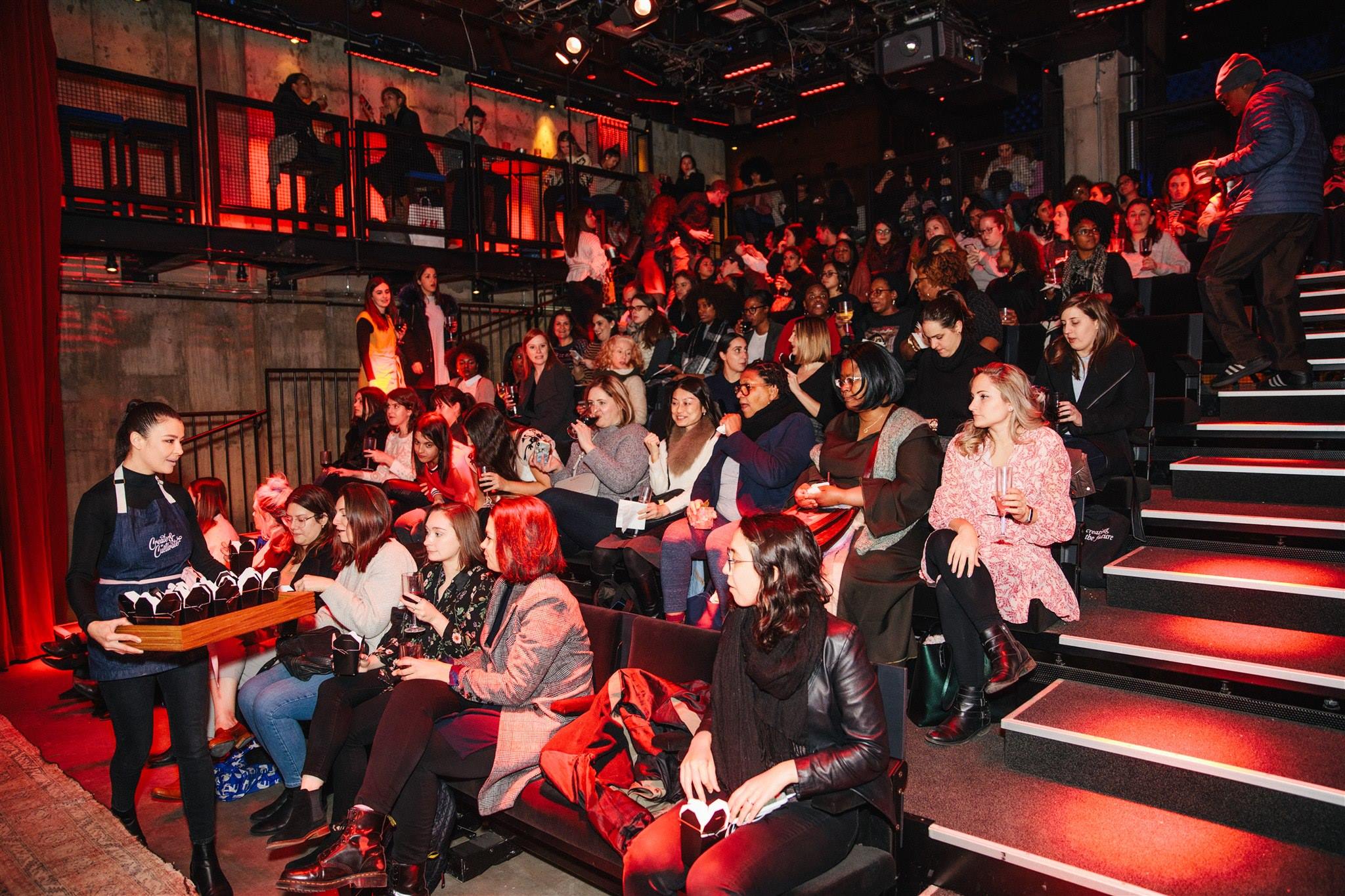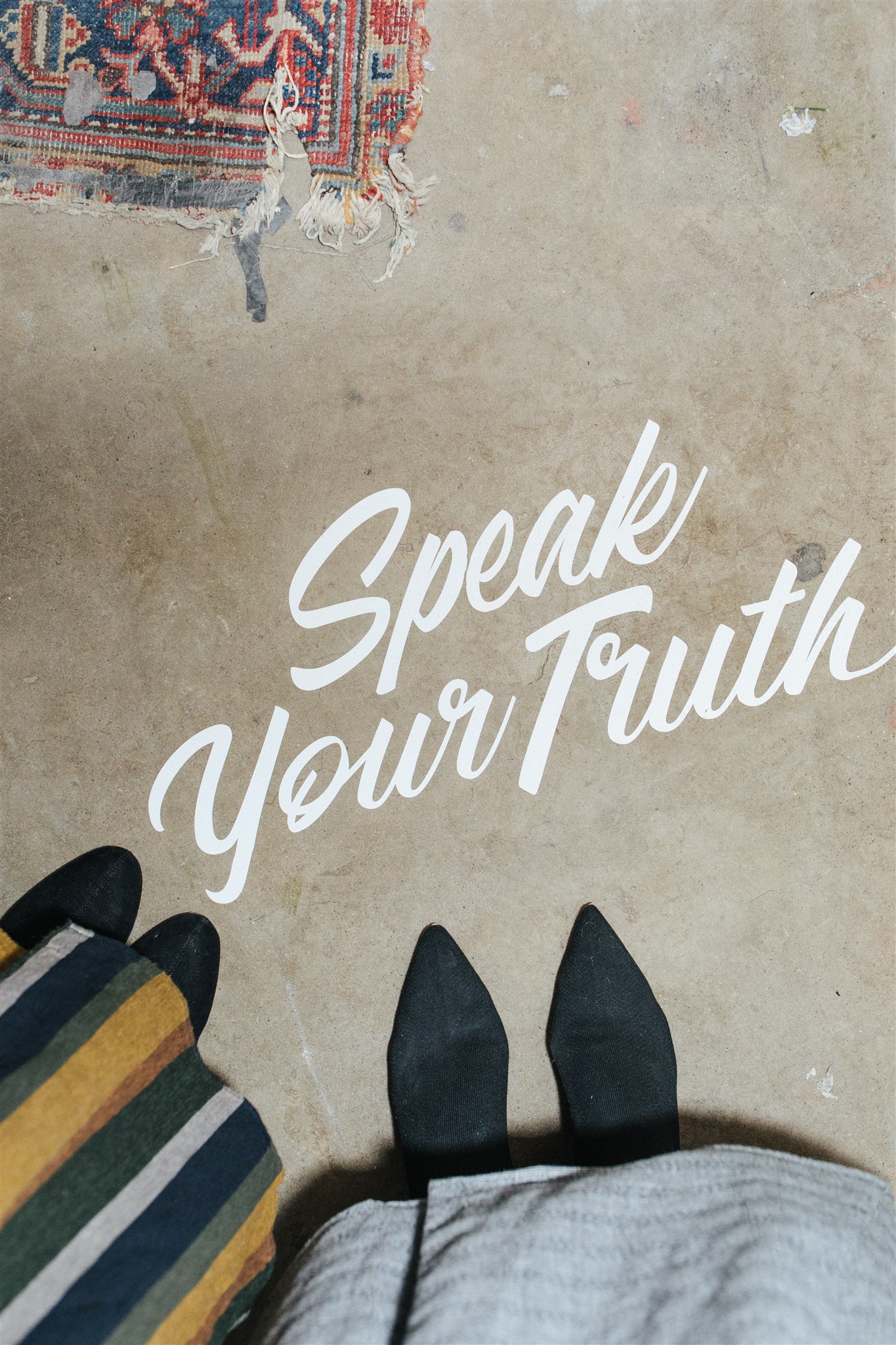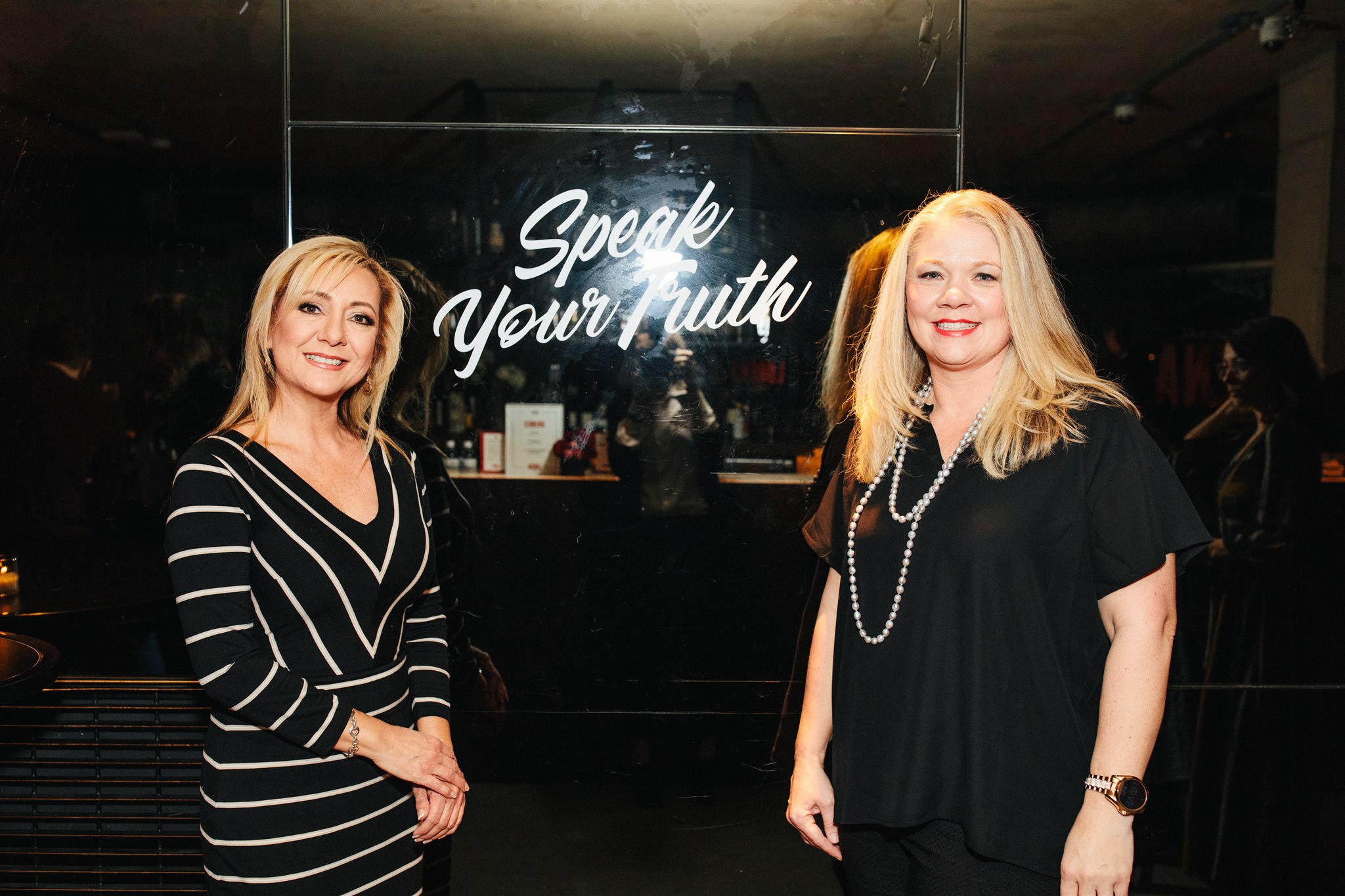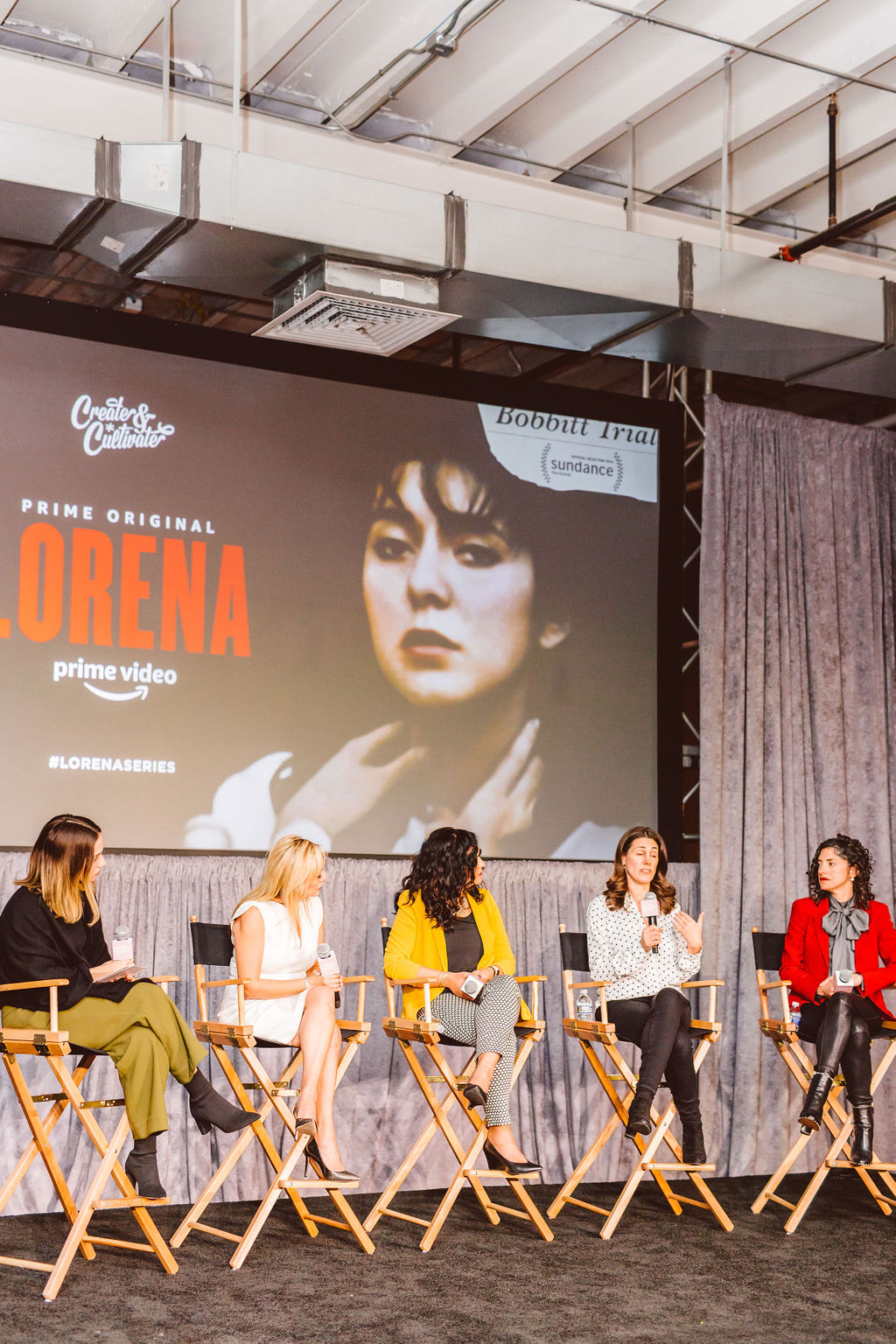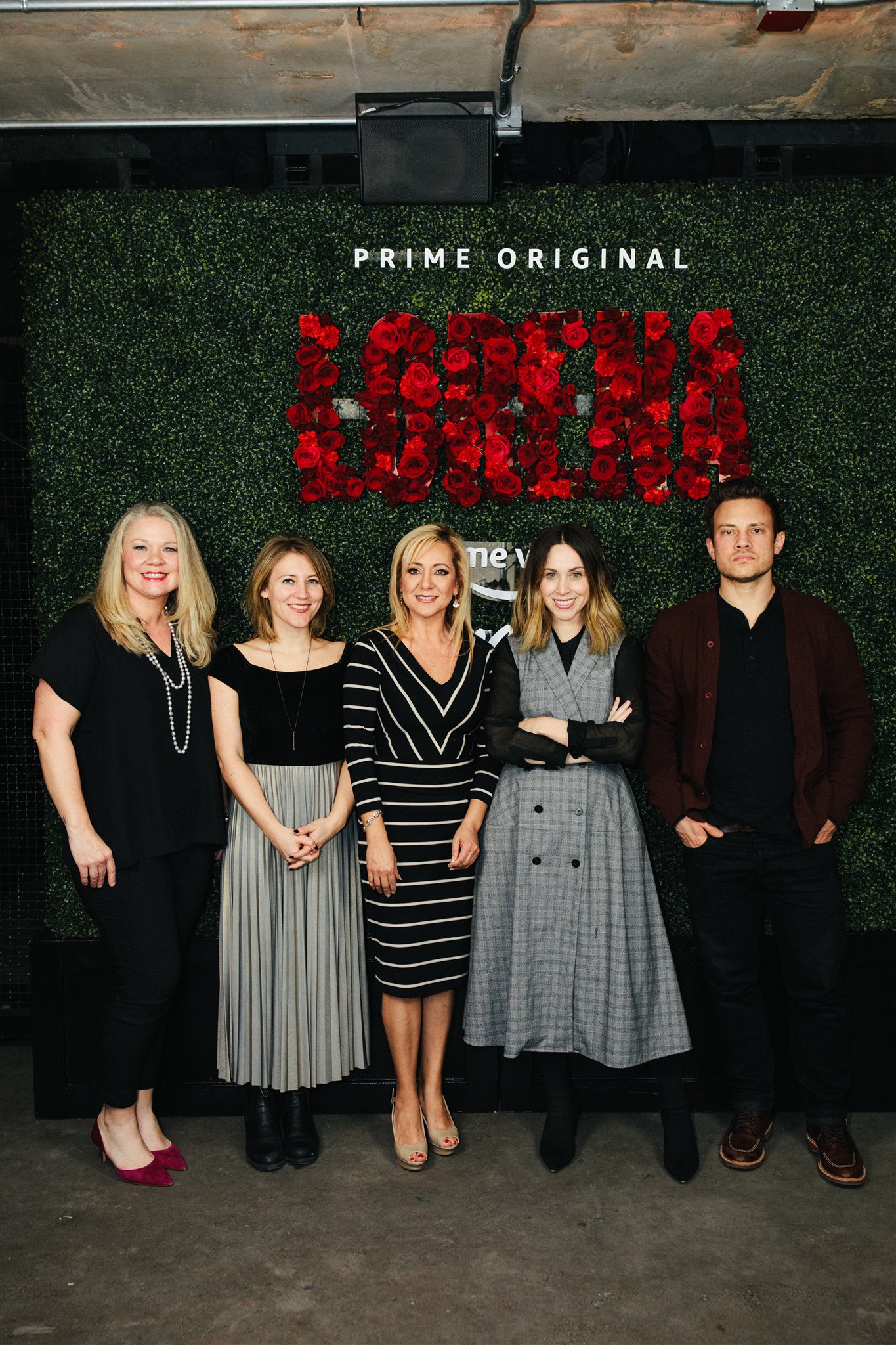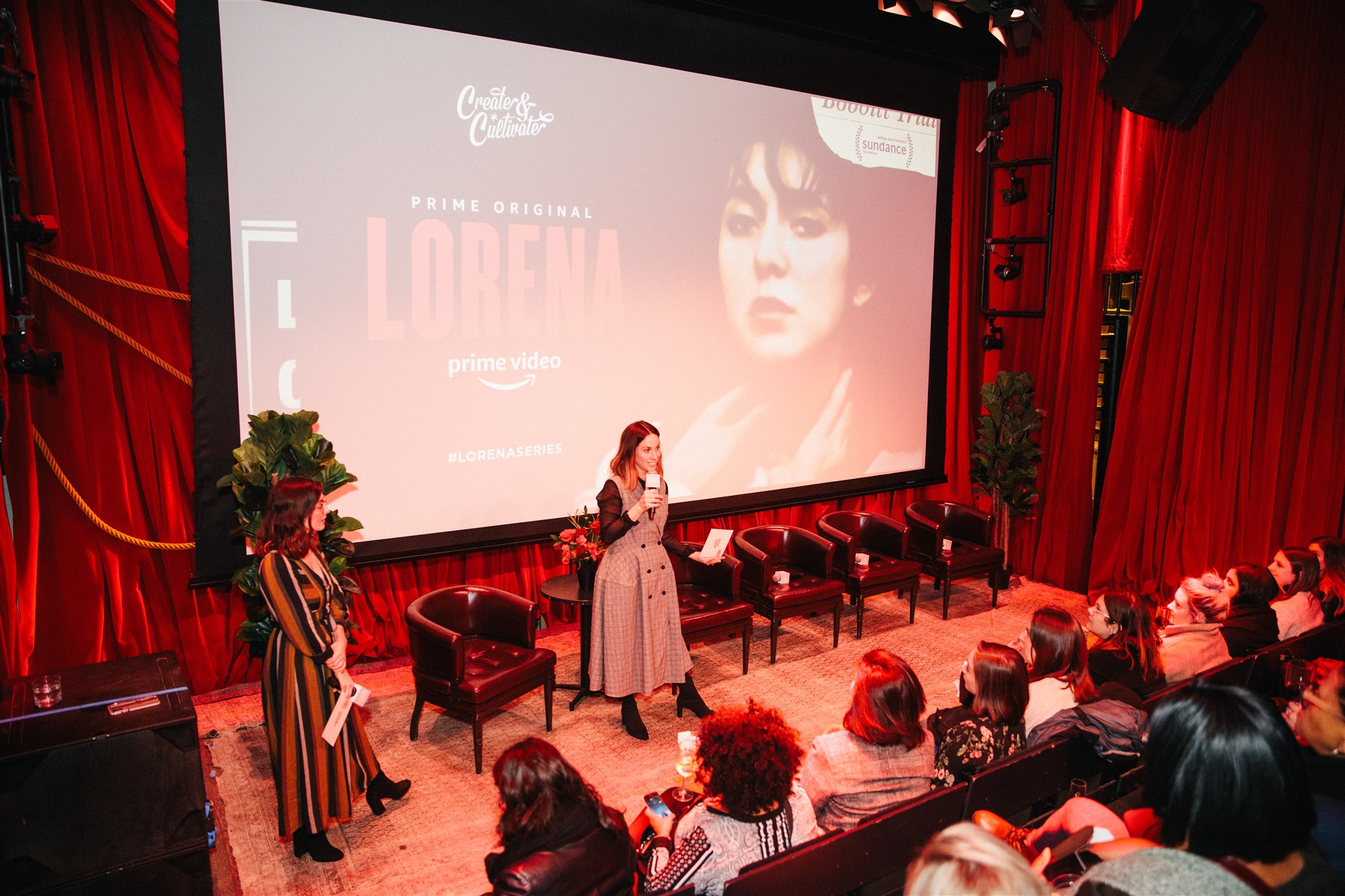How #MeToo Has Changed The Way This CEO Runs The National Domestic Violence Hotline
Have you watched the Amazon Prime Video docuseries Lorena yet? It tells the story of Lorena Gallo, who after years of being the victim of domestic violence and marital rape, cut off her husband’s penis in 1993. The media had a field day with the story, overlooking the assault and rape to make a mockery of Lorena’s suffering. Twenty-five years later, though, Lorena is speaking out—alongside several prominent voices in the domestic violence space. Last week, we held a panel and screening series in New York, Washington DC, and San Francisco. We chatted with pros like Katie Ray-Jones, CEO of the National Domestic Violence Hotline, on how violence prevention has changed and the work we still have ahead of us.
Below, Katie shares her thoughts on #MeToo, activism, and the importance of self-care in the world of non-profit work.
Tell us about the career path that brought you to the role of CEO at the National Domestic Violence Hotline. What inspired you to work in the domestic violence field and to work with The Hotline?
From undergraduate school on, my career kept taking me on a path that I wasn’t intentionally seeking. Doors kept opening; opportunities led me to work in the domestic violence field. As an undergrad, I was placed into an internship in a restraining order clinic for domestic violence victims, part of a larger domestic violence service organization. So it was my first real exposure to the issue that allowed me training and education on domestic violence. That job prompted me to want to become a therapist where I would have a private practice and provide individual and group therapy. However, during my master’s program internship I was placed again working with domestic violence survivors. This eventually lead to a job with a multi-service organization where I led the residential and nonresidential domestic violence programs.
When my husband and I had our first child we decided to move from California to Texas, and I accepted a job with the State of Texas, as the state administrator for domestic violence programs. I learned more about The National Domestic Violence Hotline through that role. When an opportunity for a Director position at The Hotline was vacant, I realized I was missing working in a direct service organization and that motivated me to want to start working with The Hotline.
What’s most fulfilling about your job?
When I hear from advocates their experiences working with victims and how they changed someone’s life, that is incredible. Being a part of the growth of the organization and the increase in education and awareness of the complexities of domestic violence has been fulfilling. We see evidence of this growth because of the annual increases in the number of people who reach out to The Hotline. Calls to The Hotline have more than doubled since I came here, and being able to serve more people is amazing to see.
What’s most challenging?
The most challenging part is that with the growth leads to a need to continue to gain resources and continue to fundraise to be able to serve more people. It is incredibly heartbreaking for everyone at The Hotline that we are not able to connect with every person who is reaching out to us for these potentially lifesaving resources, because we lack the funds. That is the challenge because you know there is someone we were not able to serve who desperately needs help.
“When I hear from advocates their experiences working with victims and how they changed someone’s life, that is incredible.”
The Hotline was created in 1994 with the signing of the Violence Against Women Act. Tell us a little about how resources for victims and survivors have changed in the last 25 years, and how you hope they continue to evolve moving forward.
The movement itself has changed over the last 25 years. We have developed a greater understanding through research and survivor experiences to recognize the complexities in each domestic violence incident. For example, we now know the impact of trauma and how important it is to work with the family holistically and remain survivor-centered. Through experience and data, we have also recognized the need to provide culturally specific services to marginalized communities and being able to advocate and serve their specific needs at a greater level than previously. We have more work to do there. We are able to articulate in a more meaningful way to members of Congress the needs of survivors. It’s shelter, it’s therapy, it’s legal advocacy, it's training for law enforcement officers and judges, and educators.
The Hotline was first funded through the Violence Against Women Act, but now it is funded through Health and Human Services, a program called Family Violence and Prevention Act. This allows multiple systems beyond the Justice Department to work together to find a solution. There is not just one service point that will end domestic violence, but it’s a collective effort of multiple systems coming together to support and intervene around the victimization of women.
For example, government agencies who are working with teens and those working on health issues, we know they both are in contact with youth who experience dating violence, so it’s important for there to be a multi-system coordinated response to address the complexities of the needed solution.
The #MeToo movement has created more discussion around sexual assault and domestic violence. We have noticed an increase of 40% in contacts to The Hotline this past year. We believe as a result of more public discourse on the issue, additional media coverage, people in abusive relationships and their friends and family are hearing these conversations, recognizing abuse in their relationships, and reaching out to us for help.
We continue to think about access to services as an organization. Originally we only had services via phone, today we have phone, online chat and text.
What do you think people misunderstand about domestic violence?
First and foremost, people often think it’s a matter of leaving the relationship and the problem just all goes away. But that may be the most dangerous action a victim can take. We also know that without intervention for the abusive partner they have a high risk of abusing again.
We also still encounter people who believe that abuse happens only to the poor and uneducated, or maybe only in certain pockets of the country, so we still do a lot of education and awareness that it can happen to anyone. Domestic Violence does not discriminate.
What should someone know if a loved one is in a domestic violence situation?
This is such a common question for friends and family. Research has shown that women go back to their abusive relationship about 7 times before they actually do leave. There are many reasons for this, first and foremost being love. The survivor remembers the person they fell in love with and still sees glimpses of that person. Their partner is not abusive all the time. Promises are made. The abusive partner often promises to get help, that they will change and the abuse will stop. Often times, the abusive partner has isolated the victim and destroyed their self-esteem.
As a support person, it is important not to judge or tell the victim what they need to do. Offer resources, be a good listener, let them know that you are there for them. Help them think about their safety and connect them with The Hotline. It is important not to bad-mouth the abusive partner. This may prevent your friend from speaking about the relationship in the future. It is important to take good care of yourself through this process as well.
“I’ve gotten better at ensuring I take good care of myself. If I am not my best, then I am not serving survivors the best I can.”
Work-life balance has to be hard in a position like yours. How do you remember to step back and take time for yourself when your work is so constant and directly impactful?
It’s hard for most people who are working in nonprofit to prioritize your personal life knowing that there are people who are encountering really challenging situations and in my current role, knowing there are so many people who still need help. I’ve gotten better at ensuring I take good care of myself. If I am not my best, then I am not serving survivors the best I can. So, one of my strategies is to calendar effectively. I made a commitment to my boys that I will not miss a game, a play or a student conference. Family is my top priority and it is important to me that my husband and boys know they are important to me.
You’ve said previously that a big goal for you is to create intersectionality of domestic violence services with other social justice issues. Tell us about that goal and how the NDVH is joining forces to solve other issues.
We have had a few moments in our organization where we recognized the power of the data that we have. Because we are the only national organization with direct contact with so many survivors across the country, we can recognize trends and help other organizations that are working with different issues such as immigration, reproductive health, firearms, and other issues that impact survivors. We really want to continue to elevate survivor experiences with these issues.
The data can help lawmakers and governmental organizations create better policies and programs that support survivors and victims with the critical needs they have, filling in where the gaps are and building out services. There is a place for the NDVH to be really thoughtful about partnerships with other organizations to lend our data and help each other.
What advice would you give to young women who want to work in social work, violence prevention, and similar fields?
This work is incredibly meaningful and impactful. The opportunity to help someone else is a gift. I think the field is so passionate and committed to being able to support survivors in really thoughtful ways that there is a lot of collaboration and a lot of willingness to work together.
For anyone considering working in the field of domestic violence and sexual assault, there are needs for social workers, lawyers, doctors, therapists, politicians, etc. Regardless of your chosen profession, staying grounded in your purpose while remembering there is a lot of goodness in the world is important.
Be mindful and start early to set up your work life balance. You need to create one that helps you have a meaningful career and a balanced life. It is a blessing to know that you have an impact on people at all levels.
Watch the full four-part Lorena docuseries now on Amazon Prime Video.
If you have been directly affected or know someone who has experienced domestic violence you can reach out to The National Domestic Violence Hotline by calling 1-800-799-7233 or chatting online with an advocate at thehotline.org. This non-profit is always available, all day, every day, 365 days a year. Highly trained expert advocates provide confidential support, safety planning, and connection with local resources.


